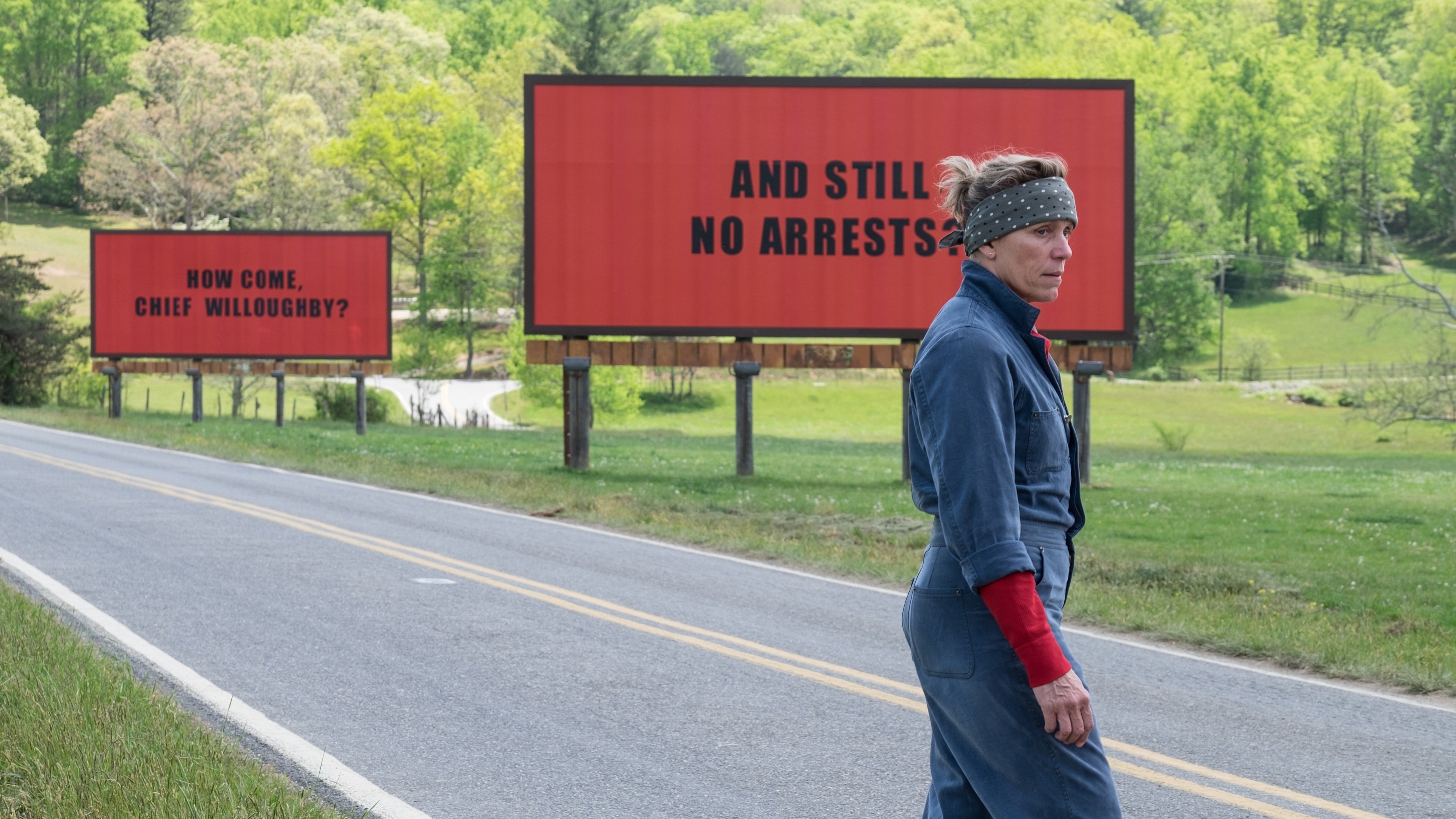
There is no formula for successfully hunting “Oscars”. Should such a formula exist by some chance, it certainly would not include a positive portrayal of the part of America situated between New York and Los Angeles. Hollywood’s antipathy towards this region, now commonly referred to as “Flyover Country”, is nothing particularly new, and its echoes could be discerned long before the sharpening of economic, political, and ideological divides in American society during the Trump era. Every time a film was set in some provincial town, there was a high likelihood that its inhabitants would be portrayed as religious fundamentalists, primitive racists, bloodthirsty thugs, or some other form of human trash with which the enlightened, civilized, and “cool” parts of the must have no association. Three Billboards Outside Ebbing, Missouri, the film with which Irish-British screenwriter and director Martin McDonagh sought to capture “Oscars”, makes little effort to deviate from such stereotypes, yet this did not prevent it from delivering a good, indeed refreshingly compelling film to audiences.
McDonagh drew the plot idea, according to his own words, while travelling through the American South in the 1990s and noticing billboards where an aggrieved father criticised the local police for failing to bring his daughter’s murderer to justice. His fictional alter ego is Mildred Hayes (Frances McDormand), a souvenir shopkeeper in the town of Ebbing, Missouri, whose life is permanently scarred by the brutal murder and rape of her teenage daughter. After the local police, led by Chief Willoughby (Woody Harrelson), fail to find the perpetrator, Mildred decides to rent three billboards accusing them of incompetence. Her move, however, sparks deep discontent among her fellow townsfolk, particularly from Dixon (Sam Rockwell), a racist and violent officer who attempts to have the billboards removed by systematically harassing Mildred and her loved ones. Mildred is, however, stubborn, and this will escalate the conflict into violent, even apocalyptic proportions.
McDonagh firmly adheres to the parameters of “political correctness” in the film, making the positivity of characters proportional to their distance from the WASP heterosexual male archetype. Mildred can thus expect help only from members of minorities such as African Americans, homosexuals, or disabled individuals, who, despite having formally won their rights, must still endure abuse or at the very least open disdain from their bigoted fellow citizens. What, however, makes Three Billboards different from typical Hollywood agitprop is that McDonagh populates the film with a series of memorable characters and employs an exceptionally skilful genre-blending of socially engaged drama, thriller, and black comedy. Even more impressive is how the film utilises plot twists, which due to their unpredictability, yet credibility, represent quite a rarity in contemporary Hollywood. Three Billboards also boasts an exceptionally impressive and spirited cast, including veteran McDormand, who won an “Oscar” for her performance, as well as Rockwell, who managed to craft a complex and convincing character from something that in any other film would have been a pathetic caricature. This, of course, does not mean that Three Billboards is a perfect film. This primarily concerns certain superfluous scenes (such as a dentist visit that reads like a poorly written farcical sketch) and some underdeveloped characters (such as Willoughby’s wife, portrayed by the rather unconvincing Abbie Cornish). The film’s greatest flaw, however, is its ending, which with its openness and unconventionality was meant to lend an “artistic” touch. It seems, though, that this is more a result of McDonagh’s indecision—whether the film intended to conclude in an old-fashioned “Hollywood” fashion but then remembered at the last moment that this would clash with the ideological orthodoxy of today’s Hollywood salon liberals. Despite these criticisms, the “Oscars” for this film were well-earned, and, unlike many films of the same ilk, McDonagh’s work can be recommended even for less demanding viewing.
RATING: 7/10 (+++)
(Note: The text in the original Croatian version is available here.)
Blog in Croatian https://draxblog.com Blog in English https://draxreview.wordpress.com/ InLeo blog https://inleo.io/@drax.leo
LeoDex: https://leodex.io/?ref=drax Hiveonboard: https://hiveonboard.com?ref=drax InLeo: https://inleo.io/signup?referral=drax.leo Rising Star game: https://www.risingstargame.com?referrer=drax 1Inch: https://1inch.exchange/#/r/0x83823d8CCB74F828148258BB4457642124b1328e
BTC donations: 1EWxiMiP6iiG9rger3NuUSd6HByaxQWafG ETH donations: 0xB305F144323b99e6f8b1d66f5D7DE78B498C32A7 BCH donations: qpvxw0jax79lhmvlgcldkzpqanf03r9cjv8y6gtmk9